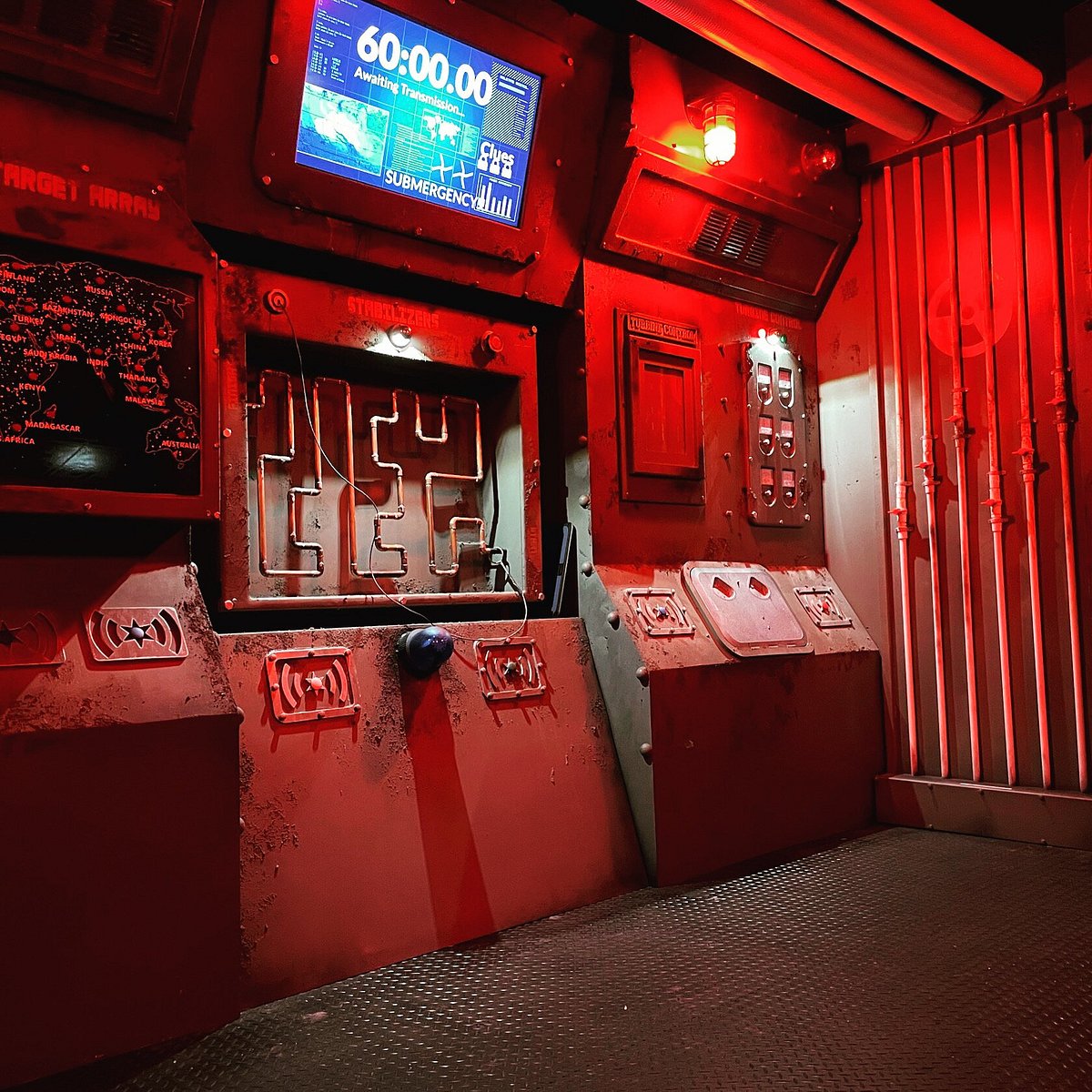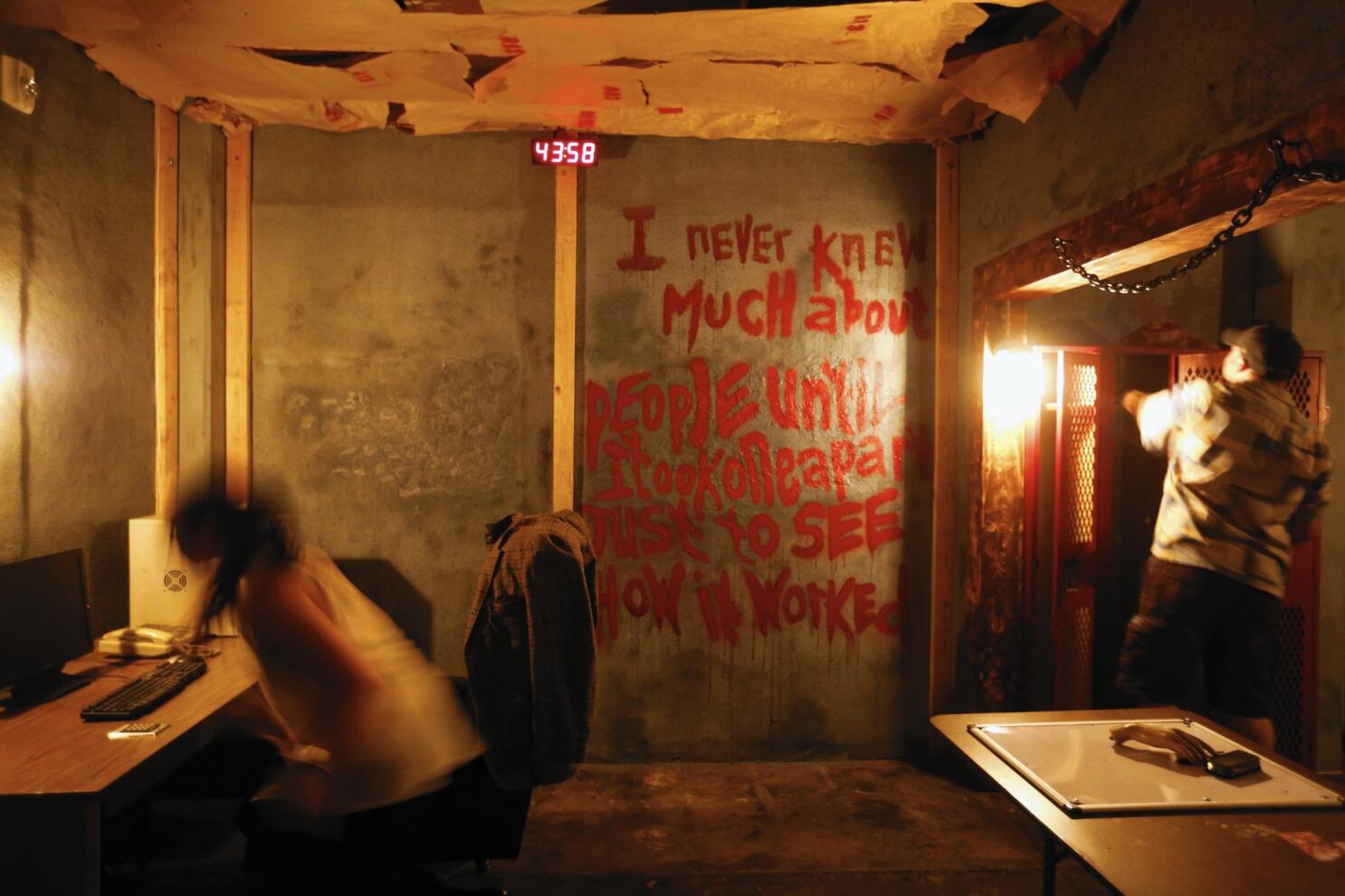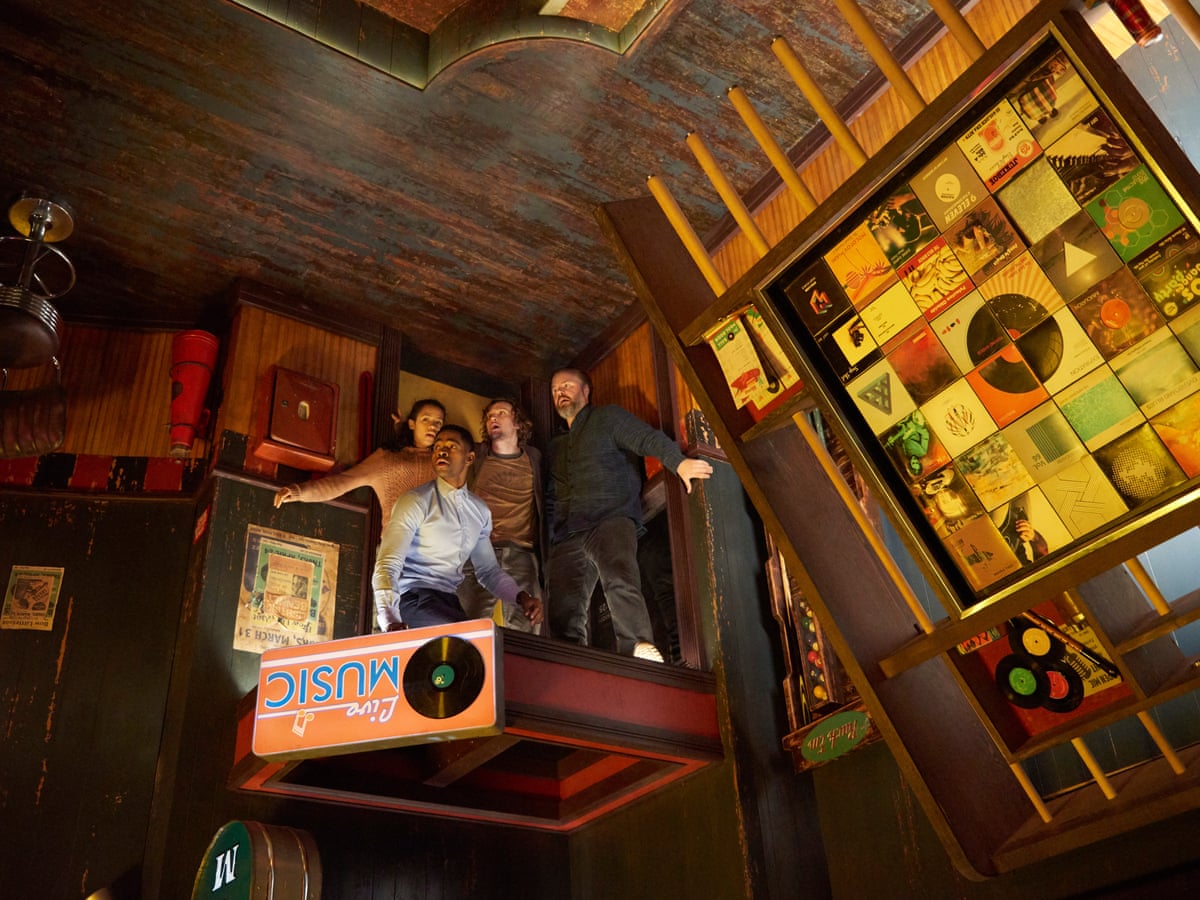Fun and Challenging Escape Room-- Strategy Your Next Adventure
Fun and Challenging Escape Room-- Strategy Your Next Adventure
Blog Article
Group Approaches: Exactly How to Work together Effectively in an Escape Room
Browsing the complexities of a getaway room demands greater than mere excitement; it requires a well-coordinated method based in clear interaction, strategic duty jobs, and experienced time administration. Teams should actively pay attention to every participant's understandings, assign duties that align with private toughness, and keep routine check-ins to guarantee focus and avoid redundancy. By fostering a setting that values communication and adaptability, groups can substantially increase their performance and success rates. The nuances of these methods can transform the experience, but exactly how exactly can they be applied to maximize the potential for success?
Establish Clear Interaction

To promote clear interaction, it is necessary to mark a central factor of call for details dissemination. Quick, concentrated updates from each team member can maintain the group informed without frustrating them with info.

Designate Functions Tactically
While clear communication sets the structure for efficient teamwork, designating duties purposefully ensures that each staff member's staminas are used properly. In an escape room situation, the time-sensitive and complicated nature of challenges demands a well-organized method to job delegation. By determining and leveraging specific proficiencies, teams can enhance their analytical capacities and enhance total efficiency.
First, analyze the distinct skills and features of each individual. As an example, someone with an eager eye for detail could succeed in locating concealed items, while a rational thinker might be much better suited to resolving puzzles - best escape room. It's just as essential to have a leader that can look after development, manage the timeline, and make decisive phone calls when required. This role usually needs solid business and interpersonal skills.
2nd, make certain that roles are versatile and versatile. As new obstacles arise, the team needs to be able to pivot, reallocating jobs as required. This adaptability aids keep momentum and protects against traffic jams that could happen as a result of stiff role assignments.
Ultimately, a calculated method to duty job not only maximizes the strengths of each staff member yet also promotes a cohesive setting, driving the group towards a successful retreat.
Utilize Diverse Skills
Recognizing and harnessing the diverse skills within your group can dramatically boost your efficiency in a retreat space. Each click this group participant brings special toughness to the table, and effectively leveraging these abilities can expedite analytical and improve overall efficiency. For example, an employee with strong analytical abilities might excel at analyzing complicated codes or patterns, while an additional with eager empirical capabilities may promptly spot hidden ideas that might ignore.
Encourage group members to articulate their insights and ideas immediately, ensuring that all prospective options are considered. Additionally, assigning tasks that line up with each participant's strengths can prevent traffic jams and guarantee that development is continuous.
Moreover, diversity in abilities frequently equates to variety in thinking styles, which is invaluable in a getaway space setting. While some obstacles might require rational reasoning and precision, others might gain from creative and association of ideas. By acknowledging and leveraging this diversity, teams can address a more comprehensive array of difficulties a lot more efficiently, consequently increasing their possibilities of an effective getaway.
Manage Time Successfully

Recognize noticeable problems and separate tasks based on group participants' strengths, guaranteeing that nobody is idle. This practice can aid maintain the group concentrated and stop time from sliding away unnoticed.
Additionally, prevent tunnel vision. If a challenge is taking also long, rotate employee or carry on to one more difficulty, returning later on with fresh point of views. Communication is paramount-- maintain every person upgraded on fixed puzzles and staying jobs to stay clear of repetitive efforts.
Lastly, use any kind of tips or hints moderately but strategically - best escape room. Recognizing when to request assistance can save beneficial time. By sticking to these time monitoring concepts, groups can significantly boost their possibilities of a successful and pleasurable getaway area experience
Debrief and Reflect
Reflection is a necessary aspect of team advancement and renovation in the context of getaway rooms. When the challenge is completed, whether efficiently or otherwise, it is vital for the check my source team to take part in a structured debriefing session. This procedure permits employee to assess their efficiency, recognize toughness, and determine locations for improvement.
Start the debrief by reviewing what went well. Highlight details instances of efficient interaction, analytic, and cooperation. Acknowledging these favorable actions reinforces them and motivates their repetition in future challenges.
Discuss minutes of confusion, miscommunication, or inadequate approaches. Urge an open and useful dialogue where team members can share their point of views without fear of criticism.
Final Thought
In final thought, effective collaboration in a getaway room is predicated upon clear communication, critical function assignments, the efficient utilization of diverse skills, and efficient time management. By producing a natural and adaptive group setting, the probability of effectively addressing problems and achieving the goal of leaving the space is dramatically enhanced.
Report this page